Spyware is a major issue that occurs when you install unknown apps for which you have no idea. For example, the recently discovered Gold Digger Android Trojan obtained the data of thousands of people and acted as if it were some government official app. Such apps spy on you, harvest data from your valuable apps, and can easily hack your bank account.
What is spyware?
Spyware is a type of sneaky software that secretly watches what you do on your phone, and it’s not just a problem for Android devices; it can affect other devices, too.
On Android, spyware can get on your phone when you download harmful apps, but sometimes, someone else might put it there. Spyware can collect your info, like where you go online and your location.
There are also things called keyloggers, which watch what you type to get your login info or bank details.
Not only that, but they can also hack your WhatsApp calls once they get into your mobile. You might be wondering how they manage to get in.
Well, for that, you unknowingly give permission. Nowadays, there’s a trend in QR code scanning, which makes it easy for them to hack you. Additionally, when discussing laptops or PCs dealing with WinRAR, Password-protected WinRAR Files are a malware trap.
This is a huge deception. Not only this, but these days, your passwords can easily be hacked, and it’s because AI can figure out your passwords through the sound of your keystrokes, which leads to all your data ending up on the dark web.
How to find spyware on Android?
According to a survey, there are many apps like these, and if they are present on your mobile, you should immediately remove them because they are well-known for spying purposes.
| App Name |
|---|
| mSpy |
| eyeZy |
| Clevguard |
| FlexiSPY |
| uMobix |
| HoverWatch |
| XNSPY |
| iKeyMonitor |
| Spyic |
| CocoSpy |
| TheTruthSpy |
| KidGuard Pro |
Detecting spyware on your Android device can be tricky, and it’s not always as simple as just uninstalling suspicious apps. This is where having a reliable malware removal tool becomes crucial. However, there are additional precautions you can take to ensure your device is free from potential threats.
In the following steps, we offer you a guide on how to remove spyware from Android using various methods.
Remember, this guide helps you uninstall the spyware app but won’t erase the data already gathered and sent to their servers. Additionally, the menu options might vary a bit on different Android versions. Proceed with these steps cautiously.
Check your Google Play Protect settings:
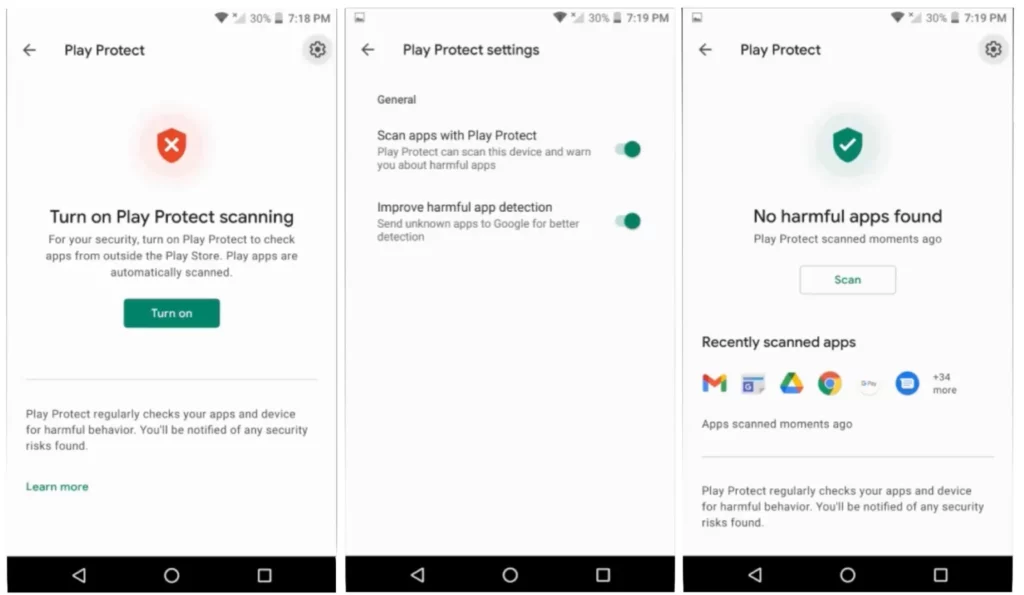
Google Play Protect is like a shield that keeps your Android phone safe from bad apps, whether you get them from the app store or other places. But if you turn it off, that shield goes away, and sneaky spyware or bad software can get on your phone without Google’s protection. That’s why the people who use spyware ask the person putting it on to turn off Google Play Protect first.
To ensure you’re safe, go into the Google Play app and check your Google Play Protect settings. Ensure it’s turned on and has recently checked your apps for problems.
Check if accessibility services have been tampered with:
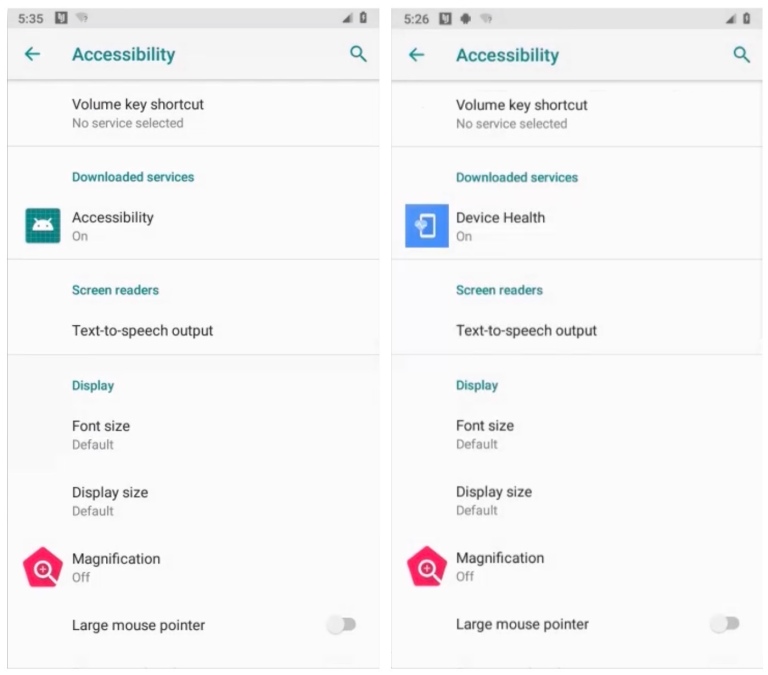
Stalkerware gets into your device by getting deep access to your phone and its data. It often takes advantage of a feature in Android that needs a lot of access to make accessibility tools like screen readers work.
So, if you see an unfamiliar service listed under Accessibility options, eliminating it is a good idea. Some stalkerware apps pretend innocent and go by names like “Accessibility” or “Device Health.”
Check if a device admin app has been installed:
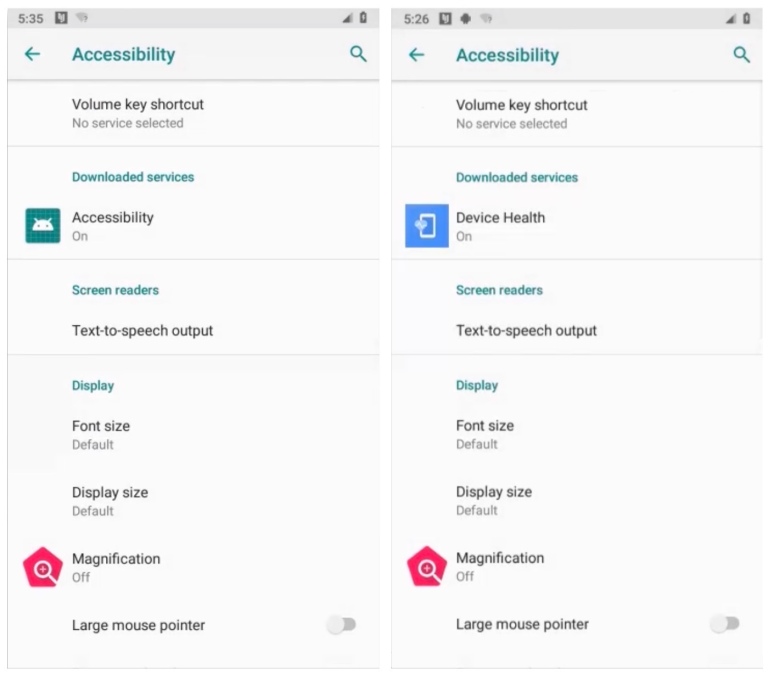
An unrecognized item in your device admin app settings is a common indicator of phone compromise. Image Credits: TechCrunch
The device admin options give much control over Android, even more than accessibility features. They’re meant for companies to manage their employees’ phones from a distance, like turning off certain features or deleting data to keep information safe.
However, these apps can also use stalkerware options to secretly record the screen and spy on the device’s owner.
Check apps to uninstall:
You might not spot an icon for stalkerware apps on your home screen, but they could still lurk in your Android device’s list of apps.
To find them, go to your Android settings, then navigate to your apps. Watch for apps with bland names like “Device Health” or “System Service.” their icons might look pretty ordinary. These sneaky apps can access your calendar, call logs, camera, contacts, and location.
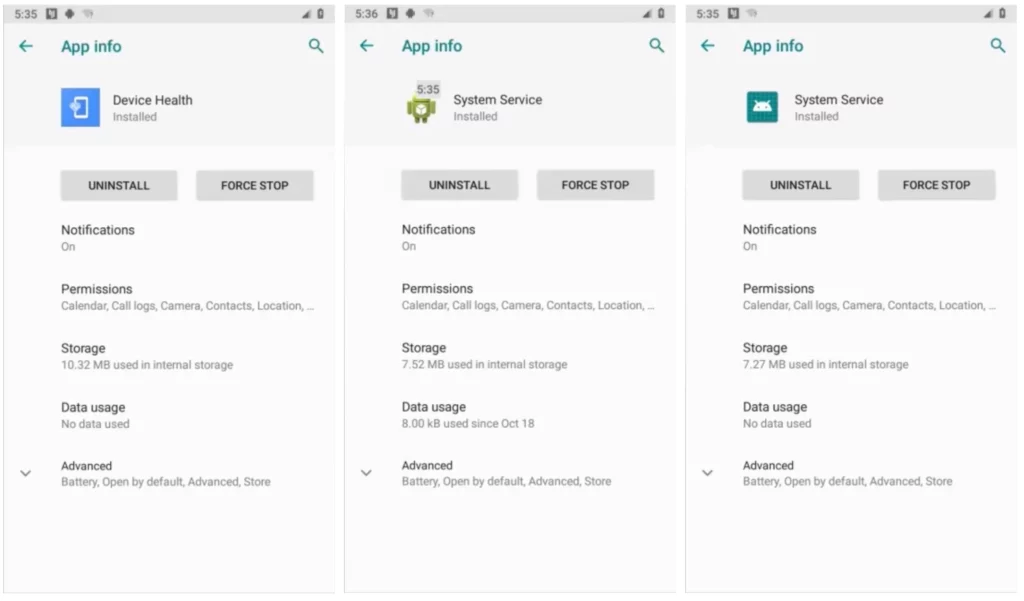
Spyware apps often have generic-looking icons. Image Credits: TechCrunch
Factory reset your Android:
If all else fails, a factory reset is your last resort. The big reset button wipes your Android clean, removing all your apps, documents, files, and the spyware hiding within.
Just remember to back up your important data before you hit that reset button.
To do a full factory reset and get rid of spyware, follow these steps:
- Open Settings.
- Tap on System.
- Go to Advanced.
- Select Reset options.
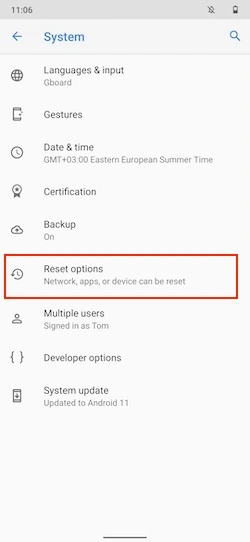
How do I protect my Android from spyware?’
Getting rid of the problem is only part of the solution. To protect your Android from spyware, you must also change your online habits. Here’s how:
- Use an Antivirus: Get antivirus software like TotalAV. It’s designed to remove all sorts of malware, including spyware. Some antiviruses even provide real-time protection, which means they watch for threats while you browse.
- Avoid Suspicious Links and Ads: Don’t click on links or download stuff from unknown sources. They could be carrying spyware.
- Secure Your Phone: Set a lock screen password or use biometric authentication (like fingerprints or face). Don’t leave your device unattended to prevent direct spyware installation.
- Keep Your Android Updated: Regularly update your Android operating system and apps. This way, you close the door on vulnerabilities that hackers could exploit.
- Don’t Root Your Android: Avoid rooting your device unless necessary. Rooting gives apps special access, which can be helpful but risky because it makes your device more susceptible to infection.
- Be Cautious with App Downloads: Before installing any app, ensure it’s from a trustworthy source. Some apps may disguise malware or spyware.
- Change Passwords Regularly: Use a reliable password manager to create strong and unique passwords. Regularly changing your passwords makes it harder for hackers to get into your accounts.
Following these steps, you can safeguard your Android from spyware and potential threats.









